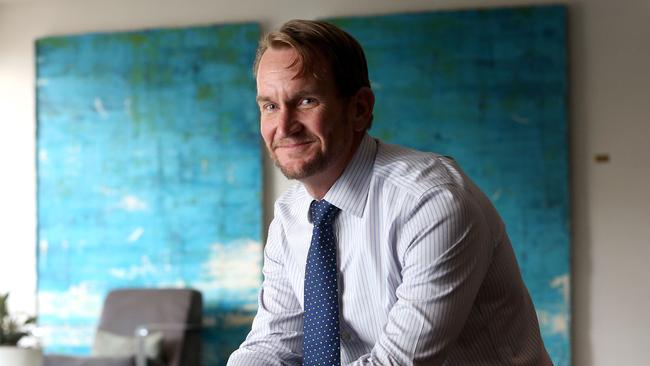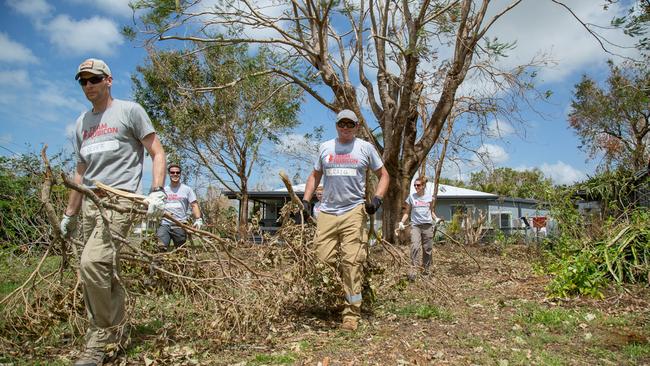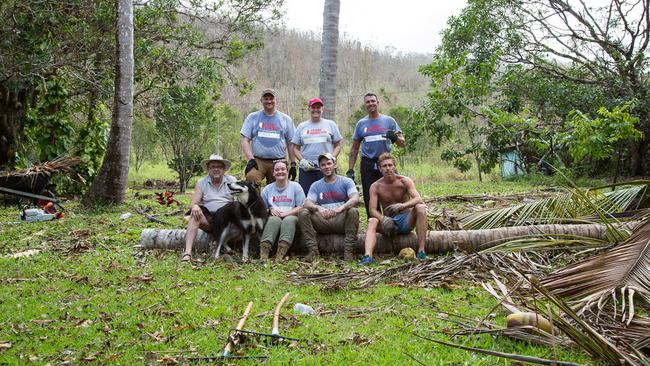Army veterans face rocky transition to civilian work
Ex-military personnel often require assistance in entering the civilian workforce.

Changing careers is a challenging transition for most people, but finding a job outside the armed forces has been difficult for some of 60,000 or more veterans who have returned from active service during the past two decades.
There is plenty of anecdotal evidence that these men and women struggle to secure jobs in the civilian workforce, often because employers may perceive them as having health issues related to their war service.
But a range of initiatives by the private sector, government and non-government organisations seems to be making a difference to the careers of veterans who have served in Iraq, Afghanistan, East Timor and other hot spots.
In recent weeks a team of 40 Australian veterans was deployed to Proserpine in far north Queensland to help with the recovery effort after Cyclone Debbie. They are part are the Australian branch of Team Rubicon, a group started by US war veterans to provide disaster relief while also offering the camaraderie ex-soldiers were accustomed to in the armed forces.
Geoff Evans, chief executive of Team Rubicon Australia, quotes his team members as saying such work enables them to gain “a sense of purpose that they struggle to find in civilian life”.
Last year the NSW government started a program to offer jobs to former Australian Defence Force members. In less than a year it has employed 310 veterans through initiatives that offer greater information about the way veterans’ skills can be transferred into public sector roles.
War veteran Simon Petley, 39, had a 20-year career in the Australian Army that included three deployments to East Timor, then to Iraq and Afghanistan with the 6RAR. He rose to the rank of warrant officer.

Petley’s service has involved great personal cost. He was in Iraq when his first child was born, and the family moved houses several times before the child started school.
“I’d spent enough time out of home,” he says. “It was time for priorities to change. I applied for a couple of jobs and missed out, but the role I’m in now involves administration and policy-type things, which is very similar to some of the work I did in defence.”
Petley works as a logistics support officer for SafeWork NSW, which is responsible for workplace safety.
“My transition was easier than a lot of my peers’. People don’t understand qualifications they gain in defence. The skills that a lot of soldiers have are management of personnel, resource management, and they don’t know how attractive they are to employers.”
Petley says the tools available on the NSW government’s veterans employment website should help to ease the transition.
They include information about how ranks in the army equate to roles in the state public service, for example. There is also a Facebook page with 1100 subscribers.
After leaving the army, Petley says, he has been asked by people if he suffers from post-traumatic stress disorder.
He doesn’t mind being asked the question, even though it reflects a stereotype in the community that may affect veterans in their job search.
“A lot of people I’ve dealt with ask that question. It shows a growing awareness of the issues that defence members have,” Petley explains.

The NSW government had planned to employ 200 veterans in the first year, but it has exceeded this target by 50 per cent. Veterans Affairs Minister David Elliott says the higher uptake shows veterans’ “military skills are highly transferable”.
“This program is also of great advantage to employers who reap the benefits of having these uniquely skilled workers,” he adds.
The program is aimed at the 1500 veterans who leave the ADF in the state each year.
However, it does not distinguish between those who have been on active service and those who have not been deployed. The first report on the programs shows that the justice and transport sectors accounted for 71 per cent of the jobs, showing a clear bias towards these sectors.
The report also shows that veterans experience a higher rejection rate in comparison with the rest of the population.
In the private sector, employers in fields such as emergency relief and crisis management are generating large numbers of job and business opportunities for war veterans.
Canberra-based Aspen Medical is a booming business that has employed many veterans in challenging roles around the world. Chief executive Bruce Armstrong says that when he employs a veteran he knows what he is getting: someone who is disciplined, has a strong work ethic and is responsive to training.
When Aspen led Australia’s response to the ebola crisis in Africa two years ago, all of the key people who managed this project in Africa and from Australia were veterans.
For entrepreneur Jesse McNeilly, who also served in Afghanistan, a key part of making a successful transition to a civilian career is to gain recognition for skills and experience.
His CV has a long list of technical qualifications that he has gained since leaving the army and starting his business, Safe Response. The firm provides fire and safety training to business.
McNeilly admits that some of his ex-army mates struggle with the transition. His advice to them is to get qualifications, such as the Certificate III and IV programs, so their defence experience becomes transferable.
“I have studied non-stop since leaving the army. I never stop learning,” he says. “You hear of guys who bum out. That is because they always come back to the army card: ‘I was in Timor and I hurt my back.’ No one cares, man.”


